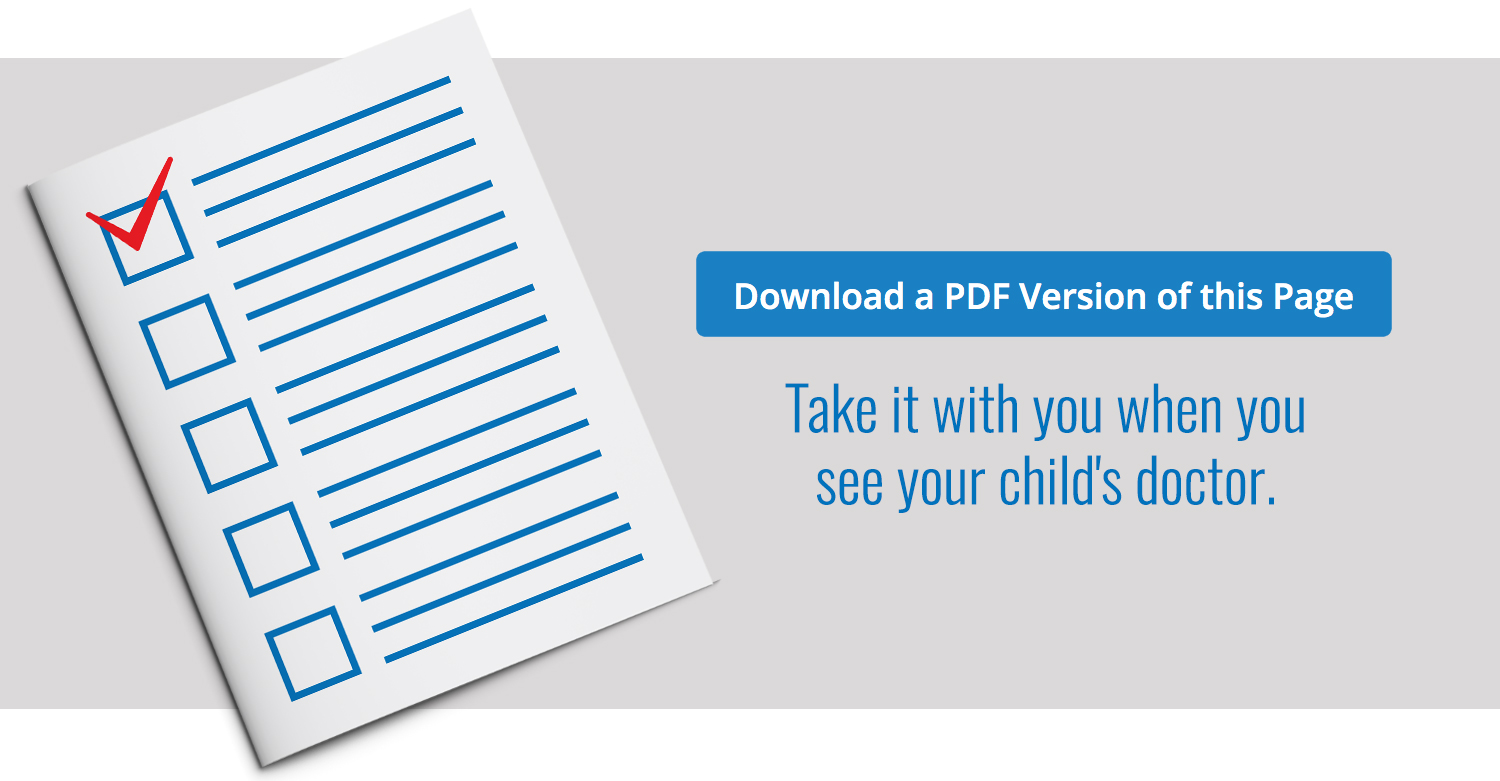
How your child plays, learns, speaks, acts and moves offers important clues about your child’s development. Developmental milestones are the things most children (75% or more) can do by a certain age.
Check the milestones your child has reached by 30 months, and talk with your child’s doctor at every visit about the milestones your child has reached and what to expect next.

What Most Children Do at This Age:
Social / Emotional
- Plays next to other children and sometimes plays with them
- Shows you what she can do by saying, “Look at me!”
- Follows simple routines when told, like helping to pick up toys when you say, “It’s clean-up time.”
Language / Communication
- Says about 50 words
- Says two or more words, with one action word, like “Doggie run”
- Names things in a book when you point and ask, “What is this?”
- Says words like “I,” “me,” or “we”
Cognitive (learning, thinking, problem-solving)
- Uses things to pretend, like feeding a block to a doll as if it were food
- Shows simple problem-solving skills, like standing on a small stool to reach something
- Follows two-step instructions like “Put the toy down and close the door.”
- Shows he knows at least one color, like pointing to a red crayon when you ask, “Which one is red?”
Movement / Physical Development
- Uses hands to twist things, like turning doorknobs or unscrewing lids
- Takes some clothes off by himself, like loose pants or an open jacket
- Jumps off the ground with both feet
- Turns book pages, one at a time, when you read to her
IT’S TIME FOR DEVELOPMENTAL SCREENING! |
||
|
At 30 months, your child is due for general developmental screening as recommended for all children by the American Academy of Pediatrics. Ask the doctor about your child’s developmental screening. Other important things to share with the doctor:
|
||
Concerned about your child’s development?
You know your child best. Don’t wait. If your child is not meeting one or more milestones, has lost skills he or she once had, or you have other concerns, act early. Talk with your child’s doctor, share your concerns, and ask about developmental screening.
If you or the doctor are still concerned:
- Ask for a referral to a specialist who can evaluate your child more; and
- Call your state or territory’s early intervention program to find out if your child can get services to help. Learn more and find the number at cdc.gov/FindEI.
For more on how to help your child, visit cdc.gov/Concerned.
Help Your Baby Learn and Grow.
Content provided by the Centers for Disease Control and Prevention’s “Learn the Signs. Act Early.” material and are not a substitute for a standardized, validated developmental screening tool.



